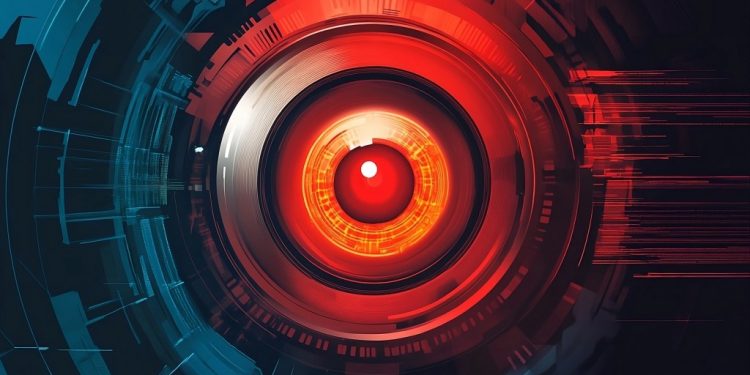Be a part of our day by day and weekly newsletters for the newest updates and unique content material on industry-leading AI protection. Study Extra
Final August, the Nationwide Institute of Requirements and Expertise (NIST) launched the primary three “post-quantum encryption requirements” designed to resist an assault from a quantum pc. For years, cryptography specialists have anxious that the arrival of quantum computing might spell doom for conventional encryption strategies. With the expertise now firmly on the horizon, the brand new NIST requirements symbolize the primary significant step towards post-quantum protections.
However is quantum computing the risk to encryption it’s been made out to be? Whereas it’s true that quantum computer systems will be capable of break conventional encryption extra rapidly and simply, we’re nonetheless a great distance from the “No Extra Secrets and techniques” decryption field imagined within the 1992 film Sneakers. With power calls for and computing energy nonetheless limiting elements, these with entry to quantum computer systems are probably contemplating placing the expertise to raised use elsewhere — similar to science, prescribed drugs and healthcare.
Keep in mind the electron microscope principle?
I’ve spent a very long time working in digital forensics, and it’s given me a singular perspective on the challenges of quantum computing. In 1996, Peter Gutman revealed a white paper, “Safe Deletion of Knowledge from Magnetic and Strong-State Reminiscence”, which theorized that deleted information might be recovered from a tough drive utilizing an electron microscope. Was this doable? Possibly — however finally, the method could be extremely laborious, resource-intensive and unreliable. Extra importantly, it wasn’t lengthy earlier than arduous drives have been storing info in such a densely-packed method that even an electron microscope had no hope of recovering deleted information.
Actually, there’s virtually no proof that such an electron microscope was ever efficiently used for that goal, and trendy testing confirms that the tactic is neither sensible nor dependable. However the concern was actual — and it led to the U.S. Division of Protection (DOD) issuing its well-known “7-pass wipe” technique of information erasure to remove any forensic proof that an electrical microscope might theoretically detect. Ought to we take such further precautions with delicate or categorized information? In fact. However the risk was nowhere close to as dire because it was made out to be. In terms of quantum computing, we could also be heading down an identical highway.
The sensible actuality of quantum computing
First, it’s essential to know how quantum computing works. Regardless of the way in which films prefer to painting hackers, it isn’t a magic wand that can immediately finish cryptography as we all know it. It’ll nonetheless must be fed particular person messages and tasked with breaking encryption — which suggests attackers might want to have a fairly good concept of which messages include beneficial info. Which may sound straightforward, however greater than 300 billion emails are despatched every day, together with trillions of texts. There are methods to slender the scope of the search, however it nonetheless requires the attacker to throw an terrible lot of computing energy on the downside.
That leads me to the true subject: Computing energy shouldn’t be infinite. Quantum computing is on the reducing fringe of expertise, which suggests your common script kiddie or hacker collective isn’t going to have the ability to get their palms on it. The one gamers who could have entry to quantum computer systems (and the power wanted to run them) can be nation-state actors and huge firms like Google, Microsoft and AI firms. To place it merely, quantum computing is initially going to be costly and never as quick to market as many have opined — and meaning nation-states will solely have a lot computing energy at their disposal. The query, then, is that this: Is breaking down encryption protocols actually what they plan to spend it on?
The true use circumstances for quantum
The reply is a powerful…perhaps. To me, the true benefits in quantum rests in analysis, financial competitors and international affect. That doesn’t imply quantum computer systems gained’t be put to make use of cracking encryption if a hostile nation-state will get its palms on one thing they know is nice — however it gained’t be the first manner the expertise is used. Have a look at it this manner: If you happen to’re a international energy with entry to essentially the most superior pc fashions on earth, what would you utilize them for? Would you go on a wild goose chase by tens of millions of encrypted communications, or would you dedicate that important time, power and compute to remedy most cancers, eradicate dementia or create superior new supplies? To me, that’s a no brainer. A person attacker may be after short-term features, however nations will suppose extra long-term.
Quantum computing is more likely to drive vital breakthroughs within the improvement of latest supplies and catalysts, resulting in the creation of stronger, lighter composites for manufacturing and extra reactive catalysts for chemical processes. That alone has the potential to revolutionize a number of industries, offering far higher long-term acquire for the nation deploying the expertise. Quantum computing has additionally proven promise within the pharmaceutical {industry}, serving to researchers develop more practical medicine and different therapies in a fraction of the time. The expertise is even getting used to reinforce house journey capabilities by enabling quicker trajectory calculations, making navigation extra correct and optimizing gasoline utilization.
It comes right down to a cost-benefit evaluation. Solely nation-states and huge firms could have entry to quantum computing anytime quickly — and can they actually spend their restricted computing energy cracking encryption algorithms after they might as a substitute be boosting their financial output and dominating monetary markets? This isn’t to say that each use case for quantum computing is nice — within the flawed palms, it might actually be utilized in harmful methods. However with a lot concentrate on the so-called “quantum apocalypse” some consider is looming, context issues.
Is breaking encryption on the record of use circumstances for quantum computing? Sure. However it’s not excessive on the record. So earlier than we spend billions of {dollars} to tear and substitute each cryptographic algorithm in use, it may be time to take a deep breath and think about how quantum computing will really be used.
Rob Lee is the chief of analysis and head of school at SANS Institute.
Source link





























